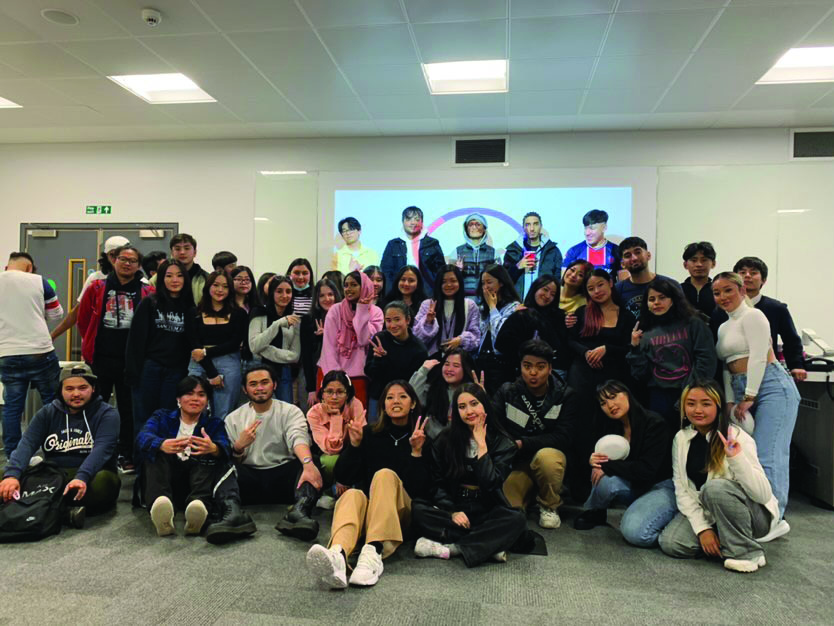Only 38 per cent of societies set up at Kingston University are definitively operating this academic year, an investigation by The River has found.
Out of 98 total societies, 64 are listed on the Student Union website as active, however only 37 appear this way as of October 2021 (having either posted on social media or responded when contacted). This follows recent difficulties stemming from COVID-19.
“We have definitely faced challenges, mainly that we were limited to online socials,” said Liv Pearson, Media Officer for KU Environmentalism Society. “We had poor attendance at some of these, which was always difficult because it decreased morale for the committee.”
Jess Tansley, Student Union Communications and Social Media Specialist, said the effects varied: “Throughout the challenging period of online-only activity during the COVID-19 lockdowns, we saw interests in groups increase at points and fade at others.”
The German Appreciation Society was one of those able to thrive during the pandemic, according to its president Stan Dimitrov, who said: “We formed shortly before the first lockdown so unfortunately weren’t able to meet, however everyone has been patient and bonded online.”
Fatma Tawfeeq, Secretary of the Law Society, said: “The pandemic has set back in-person events, which we feel has massively impacted student motivation towards getting physically involved in extracurricular events.”
Academic societies are at an advantage though, Tawfeeq admitted. “Our society has remained active due to the support we receive from the Law department,” she said.
This sentiment was shared by Saxon Worboys, President of the Psychology Society, who thanked the Psychology department for its “dedicated help”. As a result, people are reportedly “more interested than they have ever been”.
Not all academic societies have fared so well though. “Sadly the uptake of members has been small, as I think COVID made people reluctant to pay membership fees,” said Jess Ball, spokesperson for the Nursing Society. “I remember paying a £5 joining fee when I signed up, which I felt never benefited me as there were no social events.”
“During the freshers’ fair this year I got 117 students wanting to join. However, since taking down all their email addresses, only a few joined with the link I sent them,” Ball continued.
KU’s Rocket Engineering society (KURE) faced similar problems with maintaining members: “Being a practical-based society, people tend to either be very daunted or very bored by working with rockets on paper,” said Erika McDowell, Team Leader.
The SU’s website also lists 34 decidedly inactive societies including the Femininst Society and KU Mental Health & Wellbeing Society, which are not being run this year but are available to be adopted by students.
First-year BA Filmmaking student Jack Snell decided to revive the Film Society this year, describing the adoption process as “relatively straight-forward”, but adding: “You definitely have to do some searching and send out a lot of emails.”
Snell believes inactive societies could be advertised more by the SU, but that the alternative means those reviving the societies are more passionate about running them.
“Societies can promote their group in a number of different ways, including physically on campuses, by putting posters up in corridors and holding stalls,” said Tansley on behalf of the Student Union.
The Association of British and Chinese University Students (ABACUS) and the Nepalese Society (KUNS) were recently revived too after a year of inactivity and appear to be running smoothly given the circumstances.
“Since we are a cultural society, other Nepalis and their friends have hopped on board after we spread the word via social media,” said Angela Karki, Media Officer for KUNS.
“It hasn’t been too difficult so far, and even so, the issue has mainly been the additional workload for our third year committee members,” said Karki. “We do have fewer members compared to the past, but I think that’s due to fewer Nepali students attending KU.”
Cultural and faith societies appear to have withstood this year’s challenges exceptionally well, with 60 per cent and 79 per cent respectively being active on social media this month, compared to only 42 per cent of arts and activities societies.
Raven Pujanes, President of the Filipino society, believes COVID may have even helped engagement levels. “Many people have spent a whole year wondering what could have been, so I’d imagine there are a lot of people yearning for new experiences and interaction,” he said.
On the apparent decrease in societies, ABACUS President Jamie Su said: “It may be due to the fact that Kingston doesn’t actively promote people creating societies.”
Conversely, SU rep Tansley stated: “Since the start of term, we’re excited to have seen an increase in society activity. We’re always looking for students to create new societies to reflect the current student body interests and beliefs.
“Social media accounts may not be the best indicator as to whether a society is active or not. If you have any questions on the activity of a society, please contact societies@kingston.ac.uk.”

